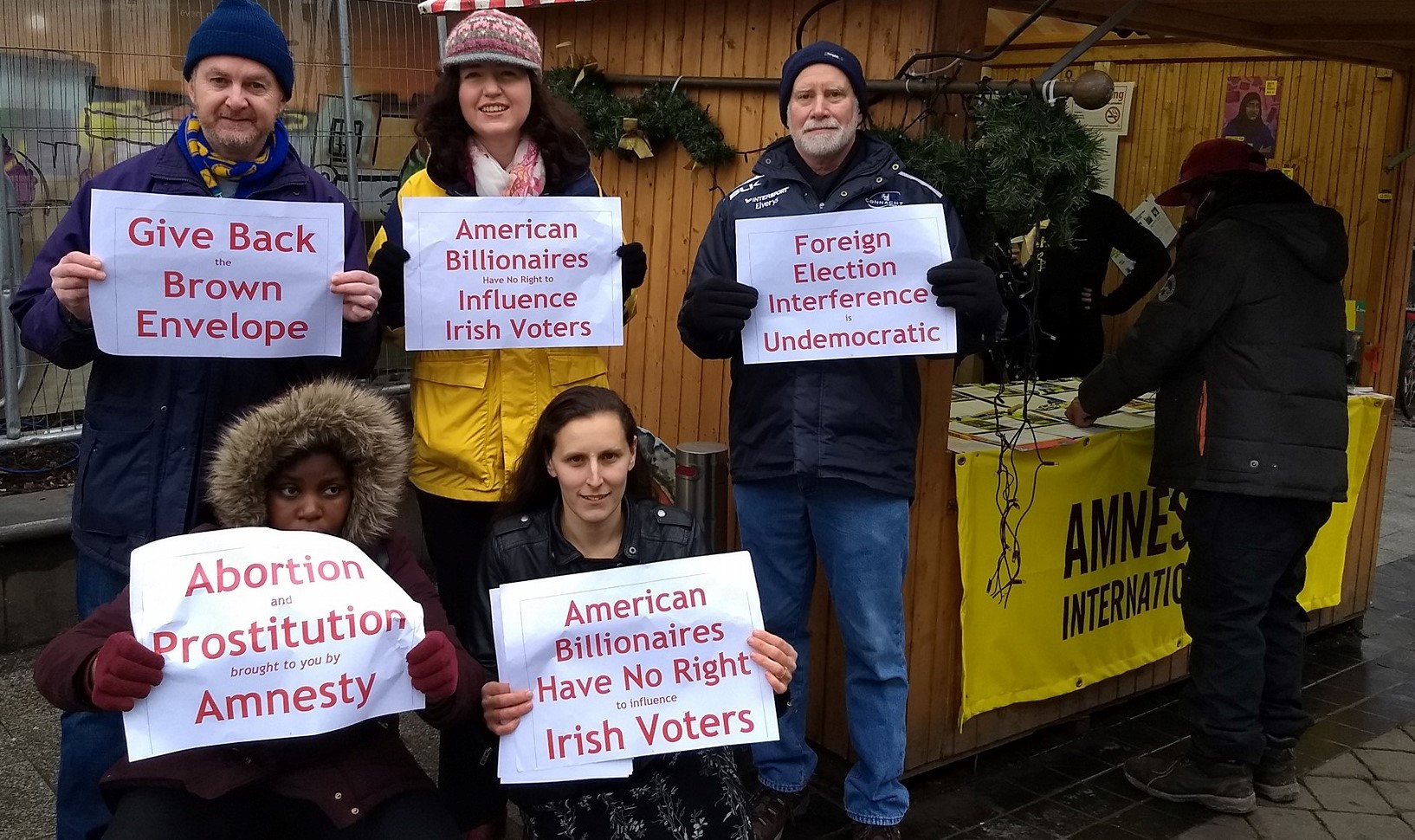
Taoiseach Leo Varadkar has said that there should be “no foreign funding” of the groups campaigning in the abortion referendum.
At a press conference with the Estonian prime minister, Yuri Ratas, Mr Varadkar said: “The rules that apply to referendums are there and certainly one thing that is significant, and one thing we’ll have to watch, is to ensure that there is no foreign funding of either campaign.”
Amnesty International, which has been campaigning for a change in Ireland’s abortion laws, has been told by the Standards in Public Office Commission to return a €137,000 grant from an international donor. Amnesty has disputed the decision and refused to return the money.
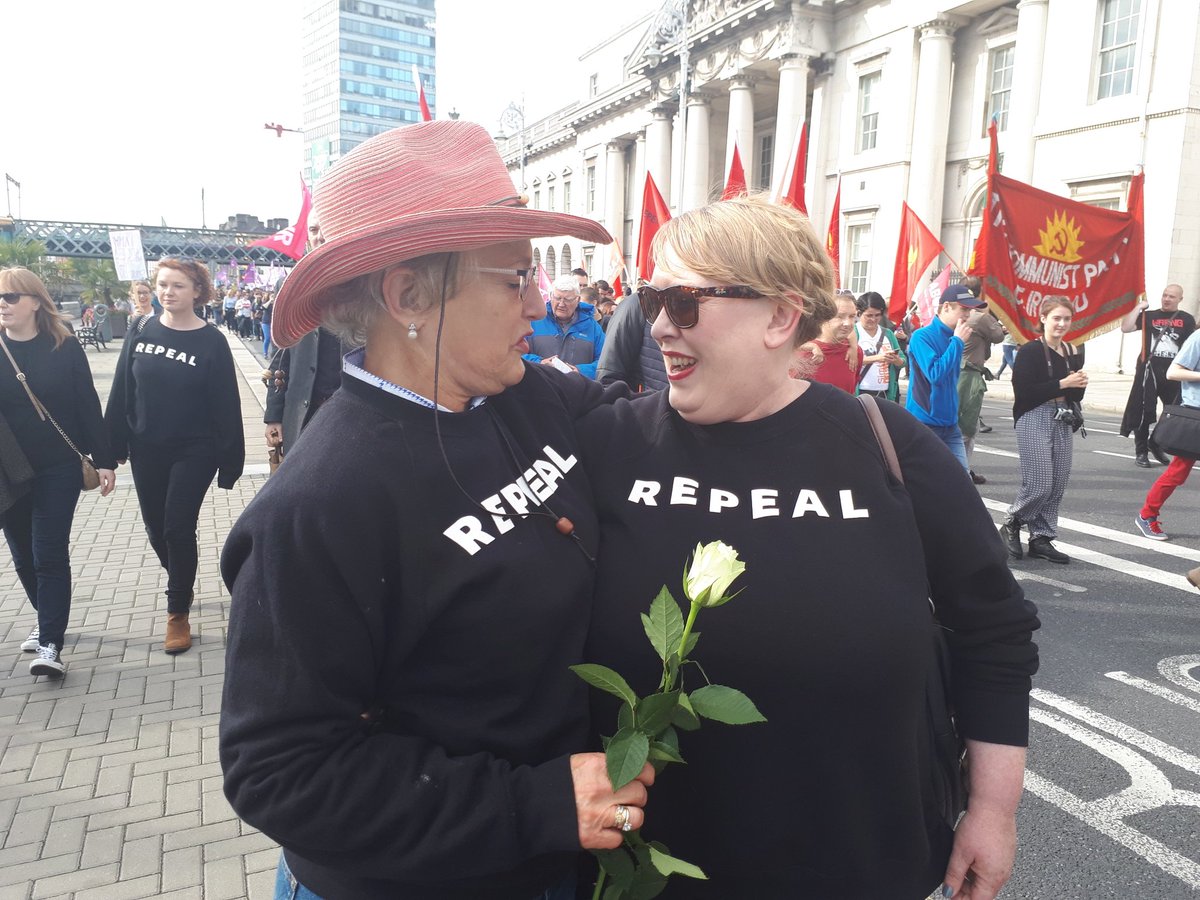
The Childcare Support Bill has been introduced in the Dáil by Minister for Children, Katherine Zappone, to underpin the State’s schemes for subsidising public creches and working parents who employ professional childminders. However, it was immediately criticised by Fianna Fáil spokesperson on children, Anne Rabbite, who said many parents, “particularly stay-at-home parents, feel aggrieved because the proposed scheme does not consider their needs”.
“Grandparents and childminders also believe the scheme does not take them into consideration. While it is appreciated that the legislation addresses one element of childcare, it does not cater for certain groups that provide childcare,” she said.
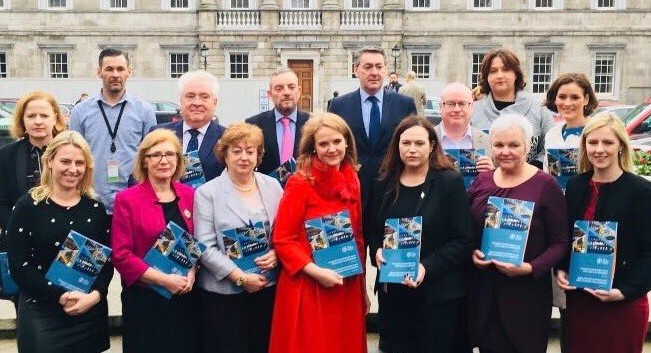
A two page summary of the advice the Attorney General has given the Government to replace the Eighth amendment, rather than simply repeal it, has been published. The replacement text would affirm “that laws may be enacted by the Oireachtas providing for the regulation of termination of pregnancy”. In the document, the AG says there would be “no absolute certainty” of the legal situation after a simple deletion of article 40.3.3 because there might still be an implied, unenumerated right to life of the unborn, a possibility that had been alluded to by the courts prior to 1983. If such a right did exist, it might curtail the constitutional freedom to legislate for abortion. Hence, to mitigate the uncertainty, he has proposed inserting a text “that expressly affirms the right of the Oireachtas to legislate for the regulation of termination of pregnancy.” While the Oireachtas already has the right to legislate, generally speaking, this text would make that “clear” by expressly stating it could do so “in the same way as it legislates in every other area of policy”.
The summary then claims that this provision “would bring greater constitutional certainty to the primary authority of the Oireachtas to make laws in this area” and that it would be “primarily a legislative function for the Oireachtas to determine how best to guarantee and balance proportionately the rights, interests and values that are engaged”.
Nonetheless, the document claims that this affirmation of the power to legislate would not infringe on the separation of powers, or impair judicial review of legislation, or restrict the rights of the courts.
“While no approach can be completely free from the risk of legal challenge, the Attorney General advises that the approach recommended above is likely to be a legally safer option than a simple repeal.”
In adopting this approach, the Government seem to be rejecting both the Citizens’ Assembly’s approach and the recommendation of the Oireachtas Committee on the Eighth Amendment. The former argued that for the sake of maximising certainty, an “immunising” provision should be inserted to exclude the possibility of the judicial review of legislation, whereas the Oireachtas committee recommended a deletion of article 40.3.3 for the sake of simplicity and clarity. The Government’s approach is an attempt to square a circle by aiming for greater certainty even while preserving judicial review.
Speaking on RTE’s Drivetime yesterday, the Head of the School of Law in Trinity College Dublin and member of the Expert Advisory Group to the Citizens’ Assembly, Prof. Oran Doyle, said “the Government has made it clear that it doesn’t want to immunise any legislation from possible constitutional challenge. So they are trying to do quite a difficult thing of making it more difficult for anyone to challenge legislation after an amendment is passed, but they don’t want to make it impossible to challenge legislation after the amendment is passed”.
He said that a simple deletion of article 40.3.3 could result in the Courts giving two very different kinds of judicial review: one that inhibited abortion legislation on the basis of an implied right to life of the unborn, and another that struck down limitations to abortion on the basis of an implied right to privacy and autonomy. The AG’s solution is an attempt to make the first possibility “less likely to happen” without excluding it completely. He continued: “part of what this advice is saying is that they want to let those possibilities play out, but they don’t want to take the step of immunising legislation from constitutional challenge—the politicians have spoken about the importance of the separation of powers and allowing some kind of judicial check on any legislation that might ultimately be passed.”

A 29-year-old mentally ill woman was euthanized last weekend in the Netherlands. Aurelia Browers, had requested euthanasia some time ago after suffering with psychiatric disorders for years, and she was granted permission on New Year’s Eve.
She recently told her story to RTL Nieuws (under the fictional name Sarah), because she thought that people who find life psychologically difficult are entitled to a dignified death just the same as those suffering from serious terminal illness. She found it unfair that people like her often have to resort to suicide. “I think that after such a rotten life I am entitled to a dignified death – people who have a serious illness get a chance for a worthy ending, so why is it so difficult for people who are psychologically ill?”
Commenting on the case at National Review Online, Andrew T. Walker, of the Ethics and Religious Liberty Commission, said: “As the Netherlands shows in the tragic case of Aurelia Browers, euthanasia laws raise a crucial question: Where do we draw the limits to the practice? Once we sanction the practice even to the smallest degree, arguments for expanding it just a little more will ensue, and before long any restrictions to it at all become hard to justify.”
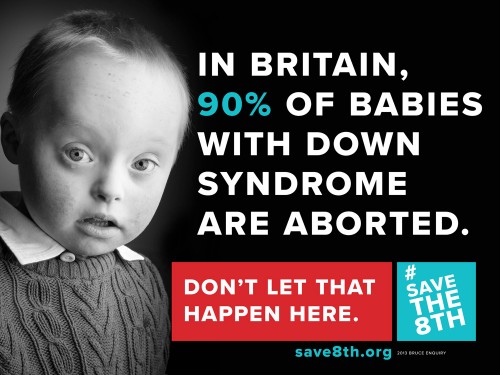
A new organisation, Disability Voices for Life, has joined other prolife groups in the push to save the Eighth amendment and they have vowed to make their voices heard throughout the referendum campaign.
A statement on behalf of the group said they refuse “to be silenced in the debate around abortion currently taking place in Ireland”. It added that they found it “appalling to see media commentators and abortion campaigners seek to dictate terms to families of children with disabilities in regard to what they could and could not say, and whether photographs of their children should be seen”.
Anne Trainer, whose son Kevin has Down syndrome, said “we have an absolute right to include our children and our families in this debate”. She said she was very disappointed that Down Syndrome Ireland chose to issue a statement which implied criticism of parents who are engaged in “pro-life” activities. “We have every right to express our deep concern at the proposal to introduce abortion into the country.”
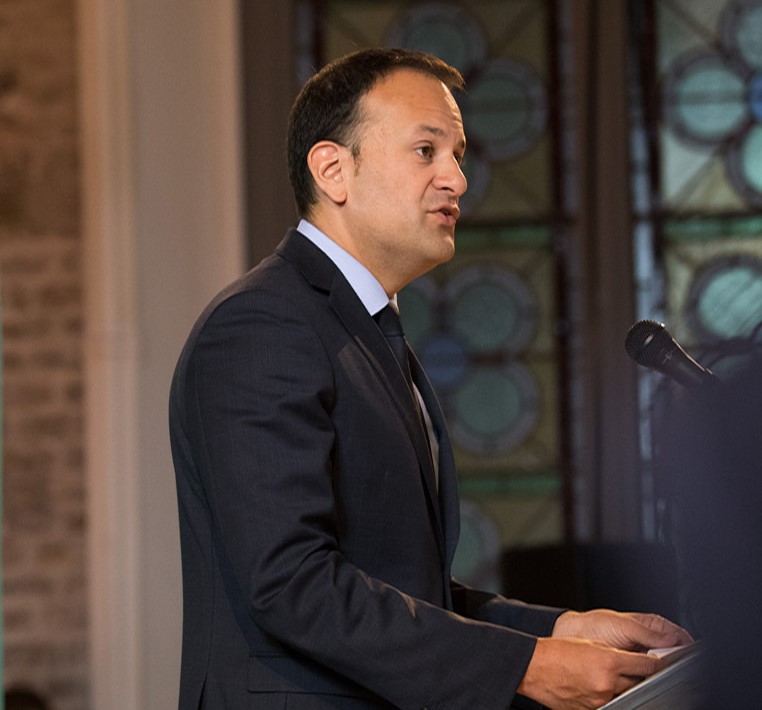
At a special meeting last night, the Cabinet agreed to proposals for a referendum to replace the pro-life amendment with a text enjoining the Oireachtas to legislate for abortion. They also agreed on legislation to follow passage of a referendum which would enshrine an abortion regime in the country far more extensive even than the UK’s ‘abortion on demand’ law. The current plan is for that legislation to allow abortion unrestricted for the first 12 weeks of pregnancy, and up to birth where there is an impact on the mental or physical health of the mother. The preferred date for the referendum is the end of May, before students start leaving the country for the summer and before the visit of Pope Francis to Dublin in August for the World Meeting of families.

Labour leader Brendan Howlin has welcomed the decision to hold an abortion referendum, but said: “I have concerns about the Government’s decision to depart from the Oireachtas Committee’s proposal for repeal simpliciter”. Attorney General Séamus Woulfe had advised the Cabinet against straightforward repeal, and said an enabling provision should also be inserted in the Constitution that would give the Oireachtas full authority over our abortion law.
Mr Howlin, however, said the Government “now intends to proceed with a proposal rejected by the Oireachtas Committee and must publish and explain its advice for doing so”. He added: “We know that every additional phrase in the Constitution is subject to further analysis and perusal, and the risk that that entails seems unnecessary given the stated powers afforded to the Oireachtas in the Constitution already.”

Catholic education bodies have expressed concern about proposals to remove religious education from the State’s required primary school ‘core curriculum’ and place it instead into a category of “flexible time” from which schools might choose from a range of new curricula options. Currently, two and a half hours each week is theoretically set aside for religious education. Various Catholic groups fear the move could “undermine and downgrade” patrons’ religious education programmes in primary schools. The diocesan adviser at Elphin Diocese said: “It would have an adverse effect on schools’ ethos and also it would damage children’s religious and spiritual development. Putting religion into flexible time diminishes the subject entirely.”
The Association of Trustees of Catholic Schools said it could impact on parents’ rights to religious and moral formation of their children, and the responsibility of a board of management to comply with its legal obligation to be accountable to the patron. “Parents have the right to ensure that their children’s education is in conformity with their religious and philosophical convictions,” it said.
The Catholic Primary Schools’ Management Association said such a move would be “seriously damaging to the characteristic spirit of faith-based schools”.
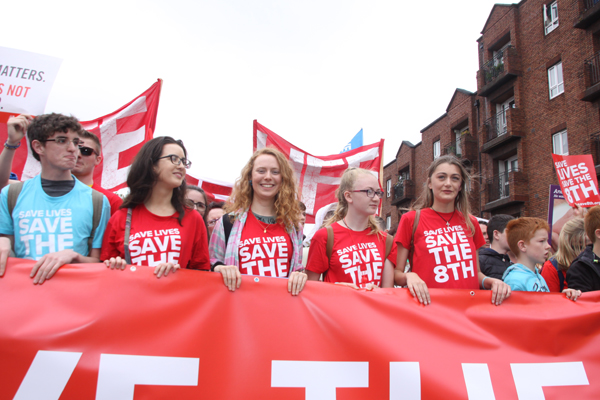
Fine Gael Minister of State for Finance Patrick O’Donovan has announced that he will oppose repeal of the Eighth Amendment. Speaking on RTÉ’s The Week in Politics on Sunday, Mr O’Donovan said he believed it was correct that a referendum be held because it was a societal matter. However, he said the proposal amounted to removing a right from the Constitution and replacing it with an “unknown” piece of legislation. “Where does the right conferred in 1983 go?” he asked. “Does it go back to the implied right that may have been there prior to 1983, or does it go altogether?”
Minister O’Donovan said “I will not support a referendum to repeal the Eighth Amendment based on the fact that I believe that it leaves too much uncertainty in relation to what is going to happen to the right conferred in 1983”. He added: “I have too much uncertainty in my own head at the moment . . . I am not asking people to agree with me.”

A Bill authored by Baroness Nuala O’Loan’s to protect the conscience rights of medical personnel received a second reading in the House of Lords last Friday. The Conscientious Objection (Medical Activites) Bill will clarify the law to ensure all medical professionals are protected from discrimination.
Under the existing law, GPs, as well as many nurses, midwives, pharmacists, and other medical professionals have limited statutory conscience protection. As a result, some areas of the healthcare profession are becoming increasingly inhospitable for those with certain deeply-held moral, philosophical or religious views. Not only is this discriminatory, in the view of the Bill’s sponsors, it could also mean healthcare professions will become increasingly less diverse, inclusive, and representative of the views of the general population.
Baroness O’Loan said: “I believe this is a timely and important Bill that should attract support across both Houses. Reasonable accommodation of conscientious objection is a matter both of liberty and equality: of individual freedom and social inclusion. No one should be coerced by the risk to their careers into violating their conscience, and it is plainly inconsistent with the principles of equality legislation to exclude whole sections of society from areas of medical employment simply because of their moral beliefs. I hope this excites support from across the country that allows us to fix this deficit of legal rights and protections”.